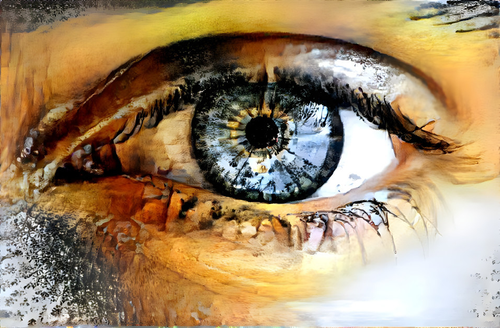One of crypto’s most controversial projects, the Worldcoin protocol, launched its $WLD token this week and announced plans for further expansion with its iris-scanning devices availability. That was greeted by a mix of skepticism and curiosity in the crypto community; some have even drawn comparisons to a “digital dictatorship” in light of the platform’s focus on biometric data.
(Thread)
Founded by Sam Altman, the CEO of @OpenAI, Worldcoin aims to “distinguish humans from AI” through what it calls a “proof of personhood.” So, the platform effectively offers a solution to a problem Altman’s OpenAI (the company behind ChatGPT) helped create.
@Worldcoin differs from other cryptocurrencies by using a “proof of personhood” credential obtained through a custom biometric imaging device called the Orb. These devices are designed to scan a person’s eyeball and generate a unique World ID (i.e., hash).
A scanned person receives free $WLD tokens, ERC-20 utility tokens with governance properties on the Worldcoin protocol.
According to the white paper, the protocol was initially deployed on Polygon in its beta phase, with the current version operating on the Ethereum mainnet using a scalable batching architecture through the layer-2 Optimism protocol.
Sam Altman is also known as a longtime proponent of universal basic income (UBI) to address income inequality. In that sense, he sees Worldcoin as a potential solution to combat fraud while distributing UBI to citizens if governments support it.
“Worldcoin is an attempt at global scale alignment, the journey will be challenging and the outcome is uncertain. But finding new ways to broadly share the coming technological prosperity is a critical challenge of our time,” said Worldcoin co-founders Sam Altman and Alex Blania.
By focusing on biometrics as proof of personhood, Altman ventures into another controversial territory.
Worldcoin is bound to encounter scrutiny regarding the collection and processing of data, its potential vulnerability to hacking attempts, and its ability to genuinely prevent fraud (and black markets for iris scans have reportedly already flourished).
(Thread)
Ethereum founder Vitalik Buterin also published a lengthy new blog post, raising concerns regarding potential data abuse in relation to Worldcoin’s iris-scanning technology.
His first concern relates to privacy: Vitalik believes the iris scanning could inadvertently collect more data beyond its intended purpose, potentially revealing a person’s sex, ethnicity, and even certain medical conditions.
The second and, perhaps, most practical Buterin’s argument concerns accessibility: how likely it will be that everyone who wants a World ID can get one.
(Thread)
But if Orbs do become prolific somehow, the headaches wouldn’t stop here, as there’s nothing to stop a government from banning Orbs in their country or using the technology to coerce citizens (imagine how Orbs can be used in North Korea, for example).
Buterin’s third concern relates to centralization: the Orbs are hardware devices that could have backdoors installed, enabling malicious manufacturers to generate numerous fake human identities and raising significant security risks.
“If even one Orb manufacturer is malicious or hacked, it can generate an unlimited number of fake iris scan hashes, and give them World IDs,” Buterin warned.
Although the word on the street is that Worldcoin is hackable by just cutting off someone’s face and draping it over your own.
Lastly, Buterin warned about security concerns, emphasizing that this is an issue for all the proof-of-personhood systems, not just Worldcoin. Besides possible problems with AI-generated images, for example, or 3D prints mistakenly approved by Orbs, there’s also a much more trivial risk of selling on or renting their World ID to someone else or losing it due to phone hacking.
In conclusion, Buterin emphasized that although proof-of-personhood systems, like Worldcoin’s iris-scanning technology, come with their share of challenges and potential dangers, he also recognized that a world without such systems might have its own risks.
Building a robust system, however, won’t be easy nor quick.
MetaTalks disclaims responsibility for any investment advice that may be contained in this article. All judgments expressed are solely the personal opinions of the author and the respondents. Any actions related to investing and trading in crypto markets involve the risk of losing funds. Based on the data provided, you make investment decisions in a balanced, responsible manner and at your own risk.

